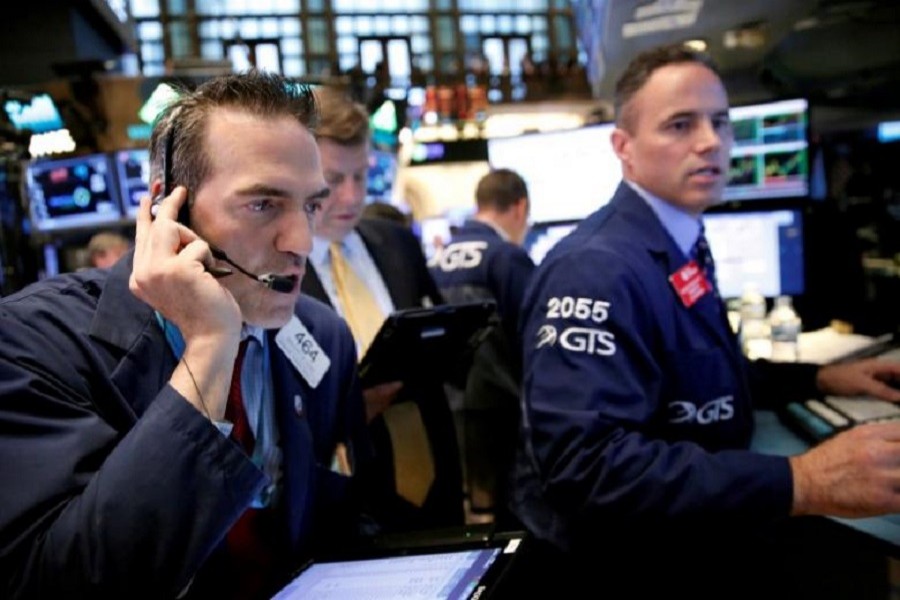The S&P 500 and Dow Jones Industrial Average climbed on Friday, as the Dow put to rest an eight-day losing streak with a boost from energy stocks, but losses in the technology space kept the Nasdaq in check.
US crude settled up 4.6 per cent at $68.58 a barrel and Brent settled 3.4 per cent higher at $75.55 after oil producers agreed to modest crude output increases to compensate for losses in production at a time of rising global demand.
Exxon Mobil rose 2.1 per cent and Chevron gained 2.0 per cent, as the two biggest boosts to the S&P. The S&P energy index was up 2.2 per cent, as the sector notched its strongest day in June.
A rally in oil prices due to OPEC’s earlier decision to restrict supply in an effort to drain global inventories has given the sector a gain of more than 11 per cent for the quarter-to-date, best among the 11 major S&P groups.
“That is the big news of the day, both the OPEC news and just the reaction of the stocks as well,” said Tim Ghriskey, Chief Investment Strategist at Inverness Counsel in New York, New York.
The Dow Jones Industrial Average rose 119.19 points, or 0.49 per cent, to 24,580.89, the S&P 500 gained 5.12 points, or 0.19 per cent, to 2,754.88 and the Nasdaq Composite dropped 20.14 points, or 0.26 per cent, to 7,692.82.
For the week, the Dow lost 2.0 per cent, its weakest weekly performance since late March. The S&P 500 fell 0.9 per cent and the Nasdaq declined 0.7 per cent.
Trade worries still loomed, however, as US President Donald Trump, in his latest move, threatened to impose a 20 per cent tariff on all European Union car imports. The announcement came a month after the administration launched a probe into whether auto imports pose a threat to national security.
“Certainly the longer it drags out, the market is bound to see some pressure, at least in some sectors and with certain companies,” said Ghriskey.
Harley-Davidson fell 2.3 per cent. The US motorbike maker has in the past warned of a “significant impact” on its sales if the European Union decides to increase duties on motorcycles in retaliation. The S&P autos & components index dipped 0.5 per cent.
This adds to worries about the China-US trade spat which escalated this week after Trump threatened to impose tariffs on $200 billion of Chinese imports and Beijing vowed to retaliate.
Leading the decliners among tech was open source software provider Red Hat Inc, which tumbled 14.2 per cent after its current-quarter and full-year revenue missed analysts’ estimates due to a strengthening dollar.
Microsoft’s 0.72 per cent decline and Nvidia’s 2.40 per cent fall also weighed.
The trade spat has pushed the Dow Jones index lower for the past eight sessions as big industrial companies such as Boeing and Caterpillar have weighed on the index and put it on pace for its worst weekly performance in 13 weeks.
The latter stages of Friday’s trading brought a surge of volume ahead of FTSE Russell’s reconstitution of its indexes, finalised after the market close.
Advancing issues outnumbered declining ones on the NYSE by a 2.05-to-1 ratio; on Nasdaq, a 1.16-to-1 ratio favoured advancers, Reuters reported.
The S&P 500 posted 19 new 52-week highs and two new lows; the Nasdaq Composite recorded 115 new highs and 41 new lows.
About 9.70 billion shares changed hands in US exchanges, well above the 7.17 billion daily average over the last 20 sessions.


